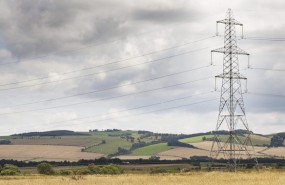Market Buzz

Tuesday newspaper round-up: TikTok, Arrival, Twitter
As the US legislative battle over TikTok continues to escalate, Shou Zi Chew, the chief executive of the video-sharing app, will make his first appearance before Congress to testify next month. Chew will testify before the House energy and commerce committee on 23 March, Republican representative Cathy McMorris Rodgers confirmed in a statement on Monday, as scrutiny of the Chinese-owned app over data privacy concerns grows. – Guardian.

Monday newspaper round-up: Dividends, streaming services, Frasers Group
The regular dividends that investors receive from owning shares in UK-listed companies soared by 16. 5% in 2022, far outstripping wage growth in either the private or public sector. Investors’ returns from underlying dividends – excluding volatile one-off payouts – reached £84. 8bn during the year, partly owing to a £3. 8bn boost from the weakness of the pound, which inflated the figures for dividends paid in dollars. – Guardian.

Sunday newspaper round-up: Dividends, BP, Capricorn Energy
Companies' dividend payments jumped by 8% to reach £94. 3bn, led by big banks alongside a surge in payouts from oil outfits. share buybacks meanwhile reached 2% of the combined value of UK-listed companies. However, Link Group anticipates that payments will decline by 2. 8% in 2023 to reach £91. 7bn and believes that the economic backdrop is "decidedly gloomier" than one year ago with higher interest rates set to pressure margins further. - Financial Mail on Sunday .

Friday newspaper round-up: Wise, Royal Mail, Shell
One of the UK’s fintech darlings, Wise, could face a regulatory investigation after a rival startup accused the money transfer firm of stifling competition. London-headquartered Atlantic Money has written to the Competition and Markets Authority (CMA) to raise concerns over potential conflicts of interest and anti-competitive behaviour after Wise blocked the firm from a swathe of its own price comparison sites. – Guardian.

Thursday newspaper round-up: Britishvolt, car production, Home Reit
The battery startup Britishvolt owed as much as £120m to creditors when it collapsed last week in a major blow to hopes of sustaining the British car industry, it can be revealed. Creditors are expected to recover a very small proportion of the debts, according to a source with knowledge of the matter, although there are understood to be several bids for the company and its assets. EY, a professional services firm, is handling the administration. – Guardian.

Wednesday newspaper round-up: Britishvolt, Fox Corp/News Corp, energy suppliers
An Australian-based startup, Recharge Industries, has made a nonbinding offer for the collapsed UK battery company Britishvolt that could revive plans to construct a large plant in northern England. The bid was lodged in the UK late on Tuesday, shortly after a cash crunch at Britishvolt sent the company into administration. The collapse has severely dented the country’s attempts to modernise its automotive industry and supply the next generation of UK-built electric vehicles.

Tuesday newspaper round-up: UK steel, Google, BT
The companies running Britain’s four remaining steel blastfurnaces have been offered £600m in government support to help fund the switch from coal and invest in lower-emissions technology. The chancellor, Jeremy Hunt, is expected to confirm £300m each for British Steel and Tata Steel in an announcement as soon as this week, although the timing will depend on them accepting the offers. The BBC first reported the government offer to both companies. – Guardian.

Monday newspaper round-up: Recession, Saga, National Grid
The UK's impending recession could be twice as bad as previously thought, according to leading economic forecasters at the business consultancy EY. Reduced government support, higher taxes and an overall worsening outlook have all led the firm’s analysts to conclude that the next three years could be worse than they anticipated three months ago. In October, EY’s Item Club had predicted a 0. 3% contraction in gross domestic product (GDP) this year, followed by 2.

Sunday newspaper round-up: Coal-fired power plants, Metro Bank, Asda
National Grid has called on coal-fired power plants to prepare to supply power on Monday given that temperatures are expected to remain near zero even as wind speeds remain low. The notifications that they should be ready - if needed - were served to three coal units owned by Drax and EdF. The plants had been scheduled to close in September but that decision was pushed back until 2024 due to soaring gas prices in the wake of Russia's war on Ukraine. According to Bloomberg data, UK futures remain at over the twice the level typically seen at this time of the year.

Friday newspaper round-up: Netflix, Home Reit, FTX
Netflix co-founder Reed Hastings, the entrepreneur who reshaped the media landscape and led the charge into streaming, announced he is stepping down as co-chief executive of the company on Thursday. Hastings, 62, co-founded the company in 1997 when Netflix delivered its subscribers movies on DVDs sent in the mail, will become chairman. Greg Peters, the company’s chief product and chief operating officer, will join Ted Sarandos, chief content officer, as a co-chief executive.

Thursday newspaper round-up: Holiday prices, Qinetiq, Tesla
Prices for package holidays and flights to popular destinations have soared in the last year, according to research. A week-long trip to Greece costs about 30% more than it did last year, with holidays in Italy, Spain and Turkey up by a fifth or more. The sobering figures, from the consumer group Which?, could cause a rethink for those planning to escape the cost of living pressure with a holiday getaway. - Guardian.

Wednesday newspaper round-up: German economy, Microsoft, Asda/Co-op
Germany will avoid a recession this year, Chancellor Olaf Scholz has insisted, despite the energy crisis which has ravaged its economy. Mr Scholz said that new liquefied natural gas (LNG) terminals on the Baltic and North Sea coasts would help cushion the blow from the energy crisis on Germany’s crucial manufacturing sector. – Guardian.

Tuesday newspaper round-up: Energy bills, ULEZ, Aveva
Jeremy Hunt is facing calls for a “social energy tariff” providing cheaper gas and electricity for low income households to be introduced when government support ends next year. In an open letter to the chancellor, 95 charities and non-profit organisations have urged the government to move quickly to legislate for a change in energy bills for “those in greatest need to ensure they are able to live in their homes comfortably”. – Guardian.

Monday newspaper round-up: Prepayment meters, Revolut, Marks & Spencer
Leading energy suppliers have stopped reclaiming debts from some prepayment meter customers amid calls for an industry moratorium on clawing back money owed through the devices. The Guardian understands that ScottishPower, which has nearly five million customers, has stopped recovering outstanding debts from people who have been moved on to prepayment meters in recent weeks. – Guardian.

Friday newspaper round-up: Royal Mail, rail strikes, Tim Cook
Royal Mail has been hit by a ransomware attack by a criminal group, which has threatened to publish the stolen information online. The postal service has received a ransom note purporting to be from LockBit, a hacker group widely thought to have close links to Russia. Royal Mail revealed that it had been hit by a “cyber incident” on Wednesday, and said it was unable to send parcels or letters abroad. The company asked customers to refrain from submitting new items for international delivery, although domestic services and imports were unaffected.

Thursday newspaper round-up: Prepayment meters, Elon Musk, FTX
Ministers are being urged to stop the forced installation of prepayment meters after revelations that 3. 2 million people – the equivalent of one person every 10 seconds – were left with cold and dark homes last year as they ran out of credit. As energy prices surged this winter, suppliers have stepped up the use of court warrants to force their way into homes to install prepayment meters, with some magistrates approving hundreds of applications at a time. For homes with smart meters, the change can be made remotely without even needing a warrant.

Wednesday newspaper round-up: Independent bookshops, car makers, Boohoo
Lidl, Zara’s owner Inditex, H&M and Next have been accused of paying garment suppliers in Bangladesh during the pandemic less than the cost of production, leaving factories struggling to pay the country’s legal minimum wage. In a survey of 1,000 factories in the country producing clothes for UK retailers, 19% of Lidl’s suppliers made the claim, as did 11% of Inditex’s, 9% of H&M’s and 8% of Next’s. – Guardian.

Tuesday newspaper round-up: UK inflation, landlords, City AM
Businesses will receive reduced support for their energy bills from the end of March as the Treasury attempts to cut the cost of compensating for soaring gas and electricity prices, the UK government has confirmed. James Cartlidge, the exchequer secretary to the Treasury, said on Monday that the government would provide £5. 5bn of “transitional support” for businesses over 12 months from 1 April 2023. – Guardian.

Monday newspaper round-up: UK manufacturers, OneWeb, foreign investors
Almost two-thirds of manufacturers in Britain fear blackouts this winter amid the fallout from the energy crisis, according to an industry survey, as concerns grow about government plans to cut financial support for businesses. As the chancellor, Jeremy Hunt, prepares to announce a sharp reduction in industry support, the trade body Make UK said the impact from sky-high energy costs on manufacturers showed no sign of abating. – Guardian.

Friday newspaper round-up: Fuel prices, Microsoft, Aviva
Pressure is mounting on petrol station owners to slash fuel prices after accusations of not passing on falling wholesale costs to drivers. The average price of petrol in the UK fell by 8p a litre in December to 151p and diesel by 9p to 174p, according to the RAC. But the motoring group accused retailers, including the largest supermarkets, of not cutting prices quickly or significantly enough compared with the falls in wholesale costs. – Guardian.